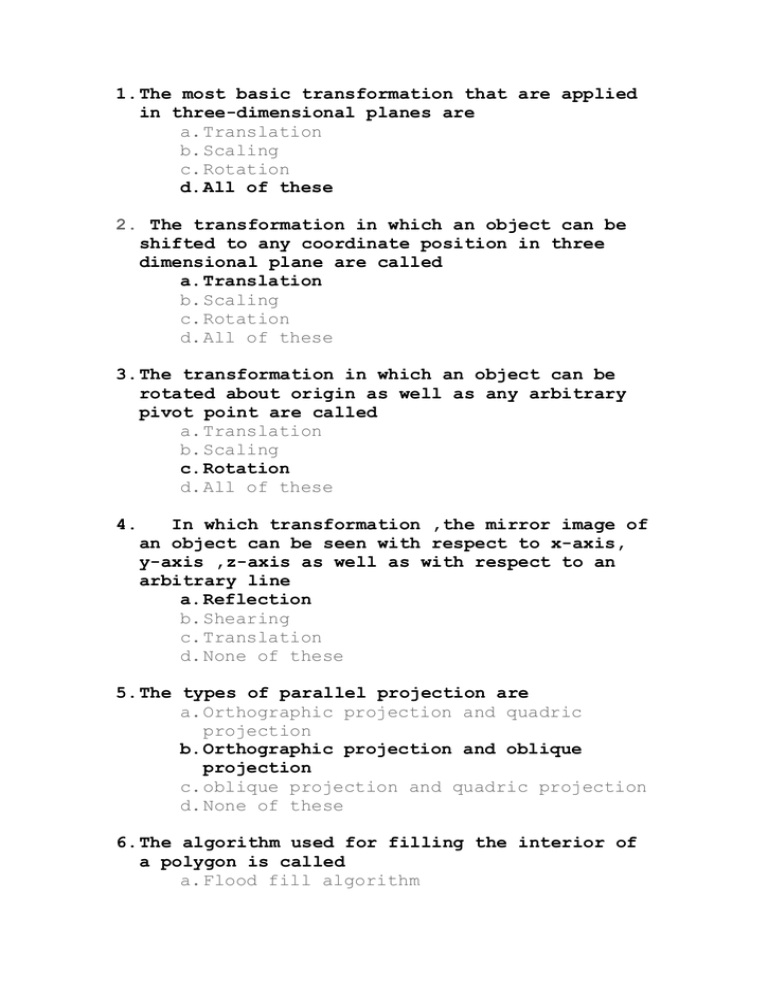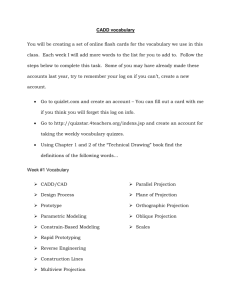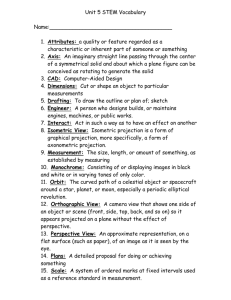أسئلة هامة في الرسم بالحاسب
advertisement

1. The most basic transformation that are applied in three-dimensional planes are a. Translation b. Scaling c. Rotation d. All of these 2. The transformation in which an object can be shifted to any coordinate position in three dimensional plane are called a. Translation b. Scaling c. Rotation d. All of these 3. The transformation in which an object can be rotated about origin as well as any arbitrary pivot point are called a. Translation b. Scaling c. Rotation d. All of these 4. In which transformation ,the mirror image of an object can be seen with respect to x-axis, y-axis ,z-axis as well as with respect to an arbitrary line a. Reflection b. Shearing c. Translation d. None of these 5. The types of parallel projection are a. Orthographic projection and quadric projection b. Orthographic projection and oblique projection c. oblique projection and quadric projection d. None of these 6. The algorithm used for filling the interior of a polygon is called a. Flood fill algorithm b. Boundary fill algorithm c. Scan line polygon fill algorithm d. None of these 7. Color depth can be defined by ________ which can be displayed on a display unit a. Bits per pixel b. Bytes per pixel c. Megabyte per pixel d. None of these // color depth refers to the number of bits per pixel on a computer monitor to represent a specific color. 8. RGB true color model has _______ color depth a. 24bit b. 32bit c. 64bit d. None 9. In beam penetration which layer is red and a. Outer is red and b. Inner is red and c. Inner is red and d. None method of color CRT, which is green inner is green outer is green inner is green 10. LCD is an ______ device a. Emissive b. Non emissive c. Gas discharge d. None of these Q(2) Draw the resulted shape when executed the following code?(2mark) (Q3) The following code describe the basic component of an opengl program ,illustrate these part and describe it briefly? Powerpoint أشرح عمل كل دالة من ملف

